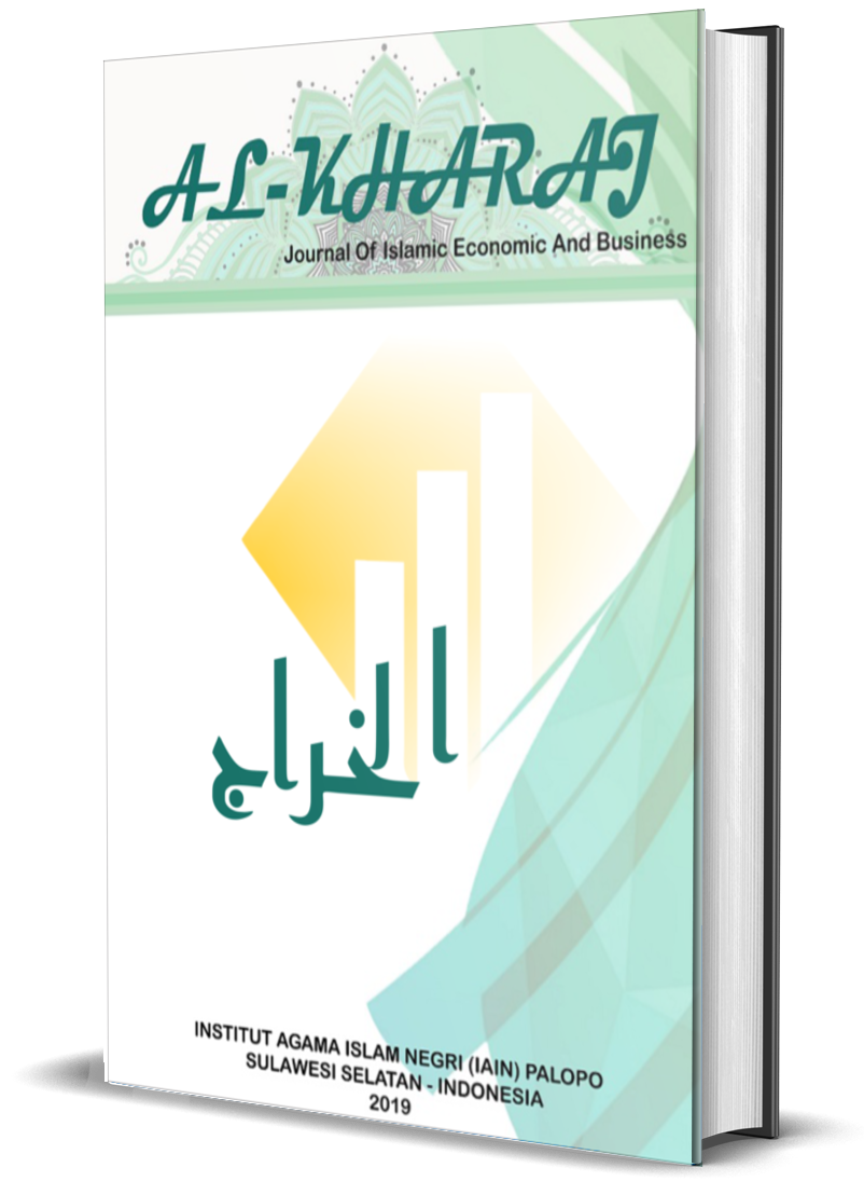Developing The Entrepreneurial Spirit of Santri (Gen Z): Challenges And Strategies
DOI:
https://doi.org/10.24256/kharaj.v6i3.5394Keywords:
Gen Z, Santri, Entrepreneurial Spirit, Challenges, StrategiesAbstract
Generation Z, born between 1997 and 2012, represents a new generation with unique characteristics that distinguish them from previous generations. They are known as digital natives, cerative individuals, and prosses a high entrepreneurial spirit. In Indonesia, “santri” are a group of young people with the potential to develop their entrepreneurial spirit.
This research aims to analyze the development of the entrepreneurial spirit among santri (Gen Z) at Pondok Modern Tazzaka, focusing on the challenges and startegies faced. The research method used is qualitative with data collection techniques including interviews, observations, and document studies. The results show several challenges in developing the entrepreneurial spirit of santri at Pondok Modern Tazzaka, namely : 1) Lack of structured entrepreneurship curriculum and programs; 2) Limited access to capital and informations; 3) A santri culture that is more focussed on religious studies ; 4) Lack of guidance and mentoring from entrepreneurs. Strategies that can be implemented to overcome these challenges are : 1) Developing a structured and comprehensive entrepreneur curriculum and programs; 2) Improving access to capital and information for santri; 3) fFostering an entrepreneurial culture within the pesantren environment; 4) Strengthening guidance and mentoring from entrepreneurs.
References
Arifah, A. N., Abdurachman, A., Rachmanda, Y. S., & Syifa, R. H. A. (2024, June). Santripreneur: Eksploring The Entreprenurial Potential In Traditional Pesantren to Realizing a Succsessful Young Generation in Globalization Era. In 8th Global Conference on Business, Management, and Entrepreneurship (GCBME 2023) (pp. 1158-1166). Atlantis Press.
David Stillman, & Jonah Stillman. (2017). Gen Z @ Work: How the Next Generation Is Transforming the Workplace. New York, NY : Harper Business, an imprint of Harper Collins Publishers, 2017 Copyright © 2017 by DAS Creative LLC.
Dwi, M., Maskuri, M., & Ghony, M. J. (2024). The Role of the Entrepreneurial Spirit in Developing Multicultural Islamic Education. International Journal of Innovation, Creativity and Change, 18(1), 90-119.
Falah, R. Z. (2018). Membangun karakter kemandirian wirausaha santri melalui sistem pendidikan pondok pesantren. Tarbawi : Jurnal Pendidikan Islam, 15(2). https://doi.org/10.34001/tarbawi.v15i2.853
Fayolle, A., & Gailly, B. (2015). The Impact of Entrepreneurship Education on Entrepreneurial Attitudes and Intention: Hysteresis and Persistence. Journal of Small Business Management, 53(1), 75–93. https://doi.org/10.1111/jsbm.12065
Ishak, I., Putri, Q. A. R., & Sarijuddin, P. (2024). Halal Product Assurance at Traditional Markets in Luwu Raya Based on Halal Supply Chain Traceability. Amwaluna: Jurnal Ekonomi dan Keuangan Syariah, 8(2), 224-240.
Mandiri, U., Prestasi, B., Napitupulu, D., & Manalu, O. (n.d.). Jurnal Pengabdian Masyarakat Multi Displin Ilmu Penguatan Manajemen Kewirausahaan Untuk Mendorong Pertumbuhan Usaha Mikro, Kecil, Dan Menengah (Umkm) Di Kalangan Mahasiswa Afiliation: Corresponding email. https://jurnal.itscience.org/index.php/jpmasdi
Peter Ferdinand Drucker. (1986). Innovation and entrepreneurship: practice and principles. Harper & Row.
Rahmadani, N., & Putri, Q. A. R. (2024). Analysis of the Influence of Religiosity Values In Reducing Consumptive Behavior in Indonesian Muslim Consumers. Amwaluna: Jurnal Ekonomi dan Keuangan Syariah, 8(2), 253-274.
Shabbir, A., & Di Gregorio, S. (1996). An examination of the relationship between women’s personal goals and structural factors influencing their decision to start a business: The case of Pakistan. Journal of Business Venturing, 11(6). https://doi.org/10.1016/S0883-9026(96)00034-1
Syarofi, A. M. (2017). Pengembangan Jiwa Kewirausahaan Santri Melalui Ekonomi Kreatif dalam Menghadapi Tantangan Ekonomi Global (Studi di Pondok Pesantren Bahrul Maghfiroh Kota Malang) (Vol. 17, Issue 2).
Wulandari, S., Irfan, A., Zakaria, N. B., & Mujahidin. (2024). Survey Study on Fraud Prevention Disclosure Measurement at State Islamic Universities in Indonesia. IQTISHODUNA: Jurnal Ekonomi Islam, 13(1), 327–348. https://doi.org/10.54471/iqtishoduna.v13i1.2305
Downloads
Published
How to Cite
Issue
Section
Citation Check
License
Copyright (c) 2024 Mawaddatul Ulya, Muhammad Fajrul Khairullah

This work is licensed under a Creative Commons Attribution-ShareAlike 4.0 International License.
Authors retain copyright and grant the journal right of first publication with the work simultaneously licensed under a Creative Commons Attribution-ShareAlike 4.0 International License. In line with the license, authors are allowed to share and adapt the material. In addition, the material must be given appropriate credit, provided with a link to the license, and indicated if changes were made. If authors remix, transform or build upon the material, authors must distribute their contributions under the same license as the original.









